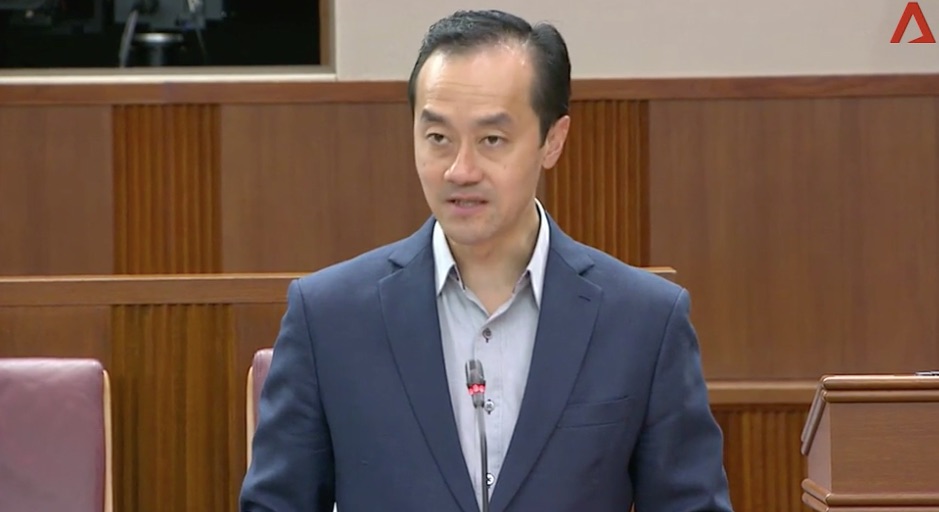TOC Editorial /
 Prime Minister Lee Hsien Loong described his new Cabinet as “a fresh start…a radical change”.
Prime Minister Lee Hsien Loong described his new Cabinet as “a fresh start…a radical change”.
TOC agrees.
The removal of Messers Mah Bow Tan, Wong Kan Seng and Raymond Lim and the demotion of Dr Vivian Balakrishnan to the Ministry of Environment and Water Resources is a decisive response to the People’s Action Party’s (PAP) worst election result since Independence.
It is Mr Lee’s clearest indication yet that he is moving to decisively deal with Singaporeans’ deep sense of dissatisfaction.
However, a handful of Cabinet appointments leave something to be desired.
Dr Ng Eng Hen takes over the heavyweight Defence Ministry despite holding the record of being the member of Cabinet who most needs to be co-opted into the PAP’s Central Executive Committee (CEC). Dr Ng had to be co-opted in 2004, 2006, 2008, and 2010 after repeated rejection by PAP cadres.
More unfortunately, Mr K Shanmugam has been given a much larger stage to ventilate his hardline views with his elevation to the Foreign Ministry.
Perceived by the public as being more Maoist than Mao within the PAP, he infamously defended the PAP’s political dominance to the New York Bar Association in 2009 by emphatically stating “we are a city, we are not a country”.
It was Mr Shanmugam who led the failed charge in the battle of analogies against the Workers’ Party in this election, and who patronizingly refused to acknowledge the groundswell of public support for the opposition by attributing opposition rally sizes to curiosity.
Moving ahead, a lesson from history might be instructive.
In the first Parliamentary sitting after the PAP’s bruising election of 1984, which saw a 12.9% swing against the PAP, backbench MP Dr Tan Cheng Bock warned that the PAP did not have a ‘blank cheque’ to govern, and that a country should not be run like a company.
Unless Dr Tan’s reprimand after GE ’84 is taken to heart, the PAP will end up somewhere in the not-too-distant future with a more damning version of GE 2011 to live through.
Lesson from ’84: don’t just listen, act
Shortly after the 1984 GE, the government set up a Feedback unit to better understand the concerns off the public. Dr Tan was appointed as its head.
In a video on his website, Dr Tan recalls how one minister asked him in a manner he interpreted unkindly: “Do you have any other worthwhile feedback to give to me?” Dr Tan, not liking the tone in which the question was asked, was angry enough to cut him off from his feedback loop.
Somewhere between 1984 and 2011, perhaps because of less brutally honest feedback heads than Dr Tan or a confusion of the act of listening for the actual need to act on feeback, the PAP lost sight of the anger at its policies and Dr Tan’s words have returned to haunt them.
PM Lee has taken an important first step at removing the unpopular ministers behind its proposals, but he needs to understand that a personnel reshuffle without a substantive change in policy delivery would create disillusionment and a backlash far worse than GE 2011.
Unpopular policies such as the income ceiling for HDB buyers, the government’s laissez-faire immigration policy, and their miserly attitude to social assistance have to be re-thought.
More fundamentally, the much talked about “transformation” of the PAP propounded by George Yeo has to be a principled one.
The root of the resentment that the PAP feels stems in large part from a sense that it does not play fair. Unless this sentiment is addressed, in the words of new PAP MP Tan Chuan Jin, the PAP’s moral authority will erode. As Mr Tan accurately notes, in politics, perception is reality.
The start to renewing the moral authority of the PAP should be the abolition of the GRC scheme and a reduction in ministerial pay.
These two issues form the twin pillars of visceral resentment against the PAP: the first is a noble sentiment for minority representation twisted for electoral self-preservation, the second runs contrary to the laymen’s sense of what public service should be.
For its long term survival, the PAP has to understand that unless these twin sources of anger are allayed, its vote share will continue to fall.
The PAP’s reliance on performance legitimacy will increasingly become less persuasive as the opposition continues to recruit better qualified candidates. Also, as Singaporeans become wealthier and better educated and move up Maslow’s hierarchy of needs, the attraction of a more pluralistic democracy will grow.
Battle for the soul of the PAP
It is an open secret that there are starkly different schools of governance within the PAP.
With the withdrawal of Messers Lee Kuan Yew and Goh Chok Tong from the political scene and a significant trimming of the second and third generation leadership, the battle to redefine the PAP will begin in earnest.
Whether proponents of a kinder and gentler Singapore like the affable Mr Tharman Shanmugaratnam and Mr Tan Chuan Jin will prevail over well positioned hardliners like Mr Shanmugam remains to be seen.
But at least Singaporeans can take some reassurance from the clearest message of this election: our vote has the power to shape Cabinet, and part of Mr Lee’s new covenant with us is that any minister who under-performs will be out.
—————–
The list of Cabinet appointments can be viewed here.
Picture from AsiaOne.




